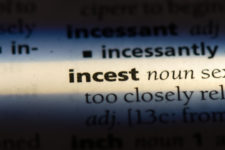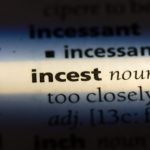Mother of ‘Incest Family’ Granted Bail

The 52-year old matriarch of a rural Australian family has been granted bail in the Supreme Court of New South Wales after spending 14 months behind bars.
The woman, given the pseudonym ‘Betty Colt’, was arrested in April 2018 and charged with five counts of perjury for allegedly making false statements under oath.
She is the fourth member of the family to be granted bail in advance of a joint trial scheduled for February 2020, which currently involves 44 charges against eight family members.
37-year old ‘Cliff Colt’, who is accused of child sexual assault offences, is expected to make an application for bail in the Supreme Court today.
The case
Mrs Colt is the head of a family of around 40 members found living in what has been described as ‘filthy conditions’ without electricity, toilets or town plumbing on a rural NSW property near Boorowa in 2012.
According to the prosecution, DNA testing establishes that at least 11 of the family members resulted from sexual relationships between their mothers and their brother or other close biological relative.
The Crown case is that Mrs Colt knew about the fact the children were the product of incestuous relationships but nevertheless lied under oath about it.
Bail granted
In his decision to grant bail, Justice Fagan of the NSW Supreme Court noted the time already spent by Mrs Colt’s behind bars will likely exceed any non-parole period she is likely to receive if found guilty.
“I can’t justify holding her in prison for what appears to be a longer period than her ultimate penalty”, he stated.
He imposed a range of conditions including that the defendant reports daily to police and surrenders her passport.
Incest laws in NSW
The offence of incest was introduced into the Crimes Act 1900 (NSW) (‘the Act’) in 1924, as section 78A of that Act.
Prior to this, incest was considered an ecclesiastical misdeed rather than a criminal offence in our state, and has even been seen as an “expression of the strength and status of the social purity movement”.
Incest has been defined as “consensual sexual activity between members of a family within certain specified degrees of “consanguinity” above the age of consent.”
It was criminalised as community attitudes shifted towards viewing sexual relations between close family members as immoral and indeed abhorrent, and the applicable laws are now embodied in sections 78A, 78B, 78C and 78F of the Act.
The legislation
Section 78A prescribes a maximum penalty of eight years’ imprisonment for anyone who ‘has sexual intercourse with a close family member who is of or above the age of 16 years’.
A ‘close family member’ is defined as a parent, son, daughter, sibling (including a half-brother or half-sister), grandparent or grandchild, being such a family member from birth.
‘Sexual intercourse’ is defined by section 61H of the Act as:
- sexual connection occasioned by the penetration to any extent of the genitalia of a female person or the anus of any person by any part of the body of another person, or any object manipulated by another person, except where the penetration is carried out for proper medical purposes, or
- sexual connection occasioned by the introduction of any part of the penis of a person into the mouth of another person, or
- cunnilingus, or
- the continuation of any of the above.
Section 78B sets down a maximum penalty of two years in prison for attempting to commit incest.
Section 78C(1) contains a statutory defence to the charge where the defendant ‘did not know that the person with whom the offence is alleged to have been committed was related to him or her, as alleged.’
In addition to this statutory defence, an accused person may be able to rely on other legal defences such as duress (being forced to commit the act) or even automatism (an involuntary act) to defeat the charge.
Section 78C(2) makes it clear that consent is not a defence to the charge.
Finally, section 78F provides that a prosecution for incest, or attempted incest, cannot be commenced without the approval of the NSW Attorney-General.
Sentencing statistics
According to the NSW Judicial Commission, a total of seven people were sentenced for incest up until September 2018 in our state, all of which were under section 78A. All cases were finalised in the District Court of NSW.
Five of those people were sentenced to imprisonment, and two to good behaviour bonds with criminal convictions.
The ‘mean’ full term of imprisonment was around four and a half years, and the mean non-parole period was around three years.






